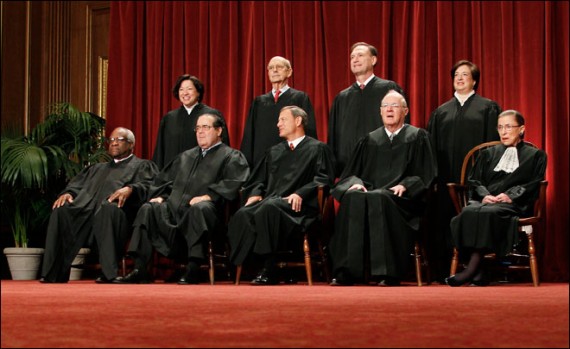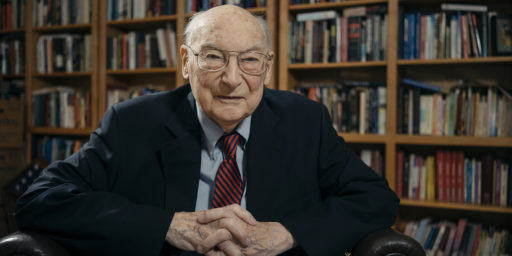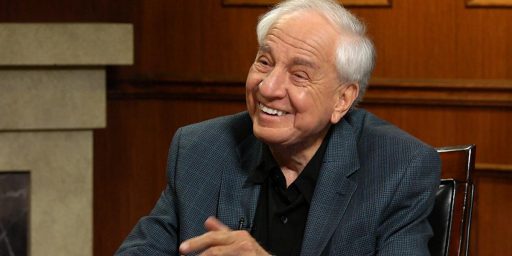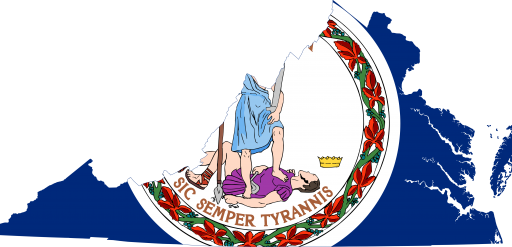Will The Supreme Court Be The Most Important Issue Of The 2016 Elections? Probably Not
The next President will have a profound ability to shape the future of the Supreme Court, but that is unlikely to be the most important issue on voters minds in 2016.
The Washington Post’s Paul Waldman is worried enough about the Supreme Court to argue that it should be the biggest issue in the 2016 campaign:
As much as we’ve debated Supreme Court cases in recent years, we haven’t given much attention to the idea of a shift in the court’s ideology because for so long the court has been essentially the same: divided 5-4, with conservatives having the advantage yet liberals winning the occasional significant victory when a swing justice moves to their side. And though a couple of recent confirmations have sparked controversy (Samuel Alito and Sonia Sotomayor were both the target of failed attempts to derail their nominations), all of the retirements in the last three presidencies were of justices from the same general ideology as the sitting president. The last time a new justice was radically different from the outgoing one was when Clarence Thomas replaced Thurgood Marshall — 23 years ago.
Whether a Democrat or a Republican wins in 2016, he or she may well have the chance to shift the court’s ideological balance. Ginsburg is the oldest justice at 81; Antonin Scalia and Anthony Kennedy are both 78, and Stephen Breyer is 76. If the right person is elected and the right justice retires, it could be an earthquake.
Consider this scenario: Hillary Clinton becomes president in 2017, and sometime later one of the conservative justices retires. Now there would be a liberal majority on the court, a complete transformation in its balance. A court that now consistently favors those with power, whether corporations or the government, would become much more likely to rule in favor of workers, criminal defendants and those with civil rights claims. Or alternately: The Republican nominee wins, and one of the liberal justices retires. With conservatives in control not by 5-4 but 6-3, there would be a cascade of even more conservative decisions. The overturning of Roe v. Wade would be just the beginning.
There’s not really anything groundbreaking in Waldman’s observations here. There is always the potential that a particular President could have the potential have a significant impact on the Supreme Court depending on who resigns during his or her time in office, and there’s no real way of predicting when that might happen. Richard Nixon named four Justices to the Supreme Court during his roughly 6 1/2 years in office, Gerald Ford had one even though he was President less than two years. After President Carter went four years without the opportunity to nominate a single Justice, President Reagan named three and each of his four successors has named two regardless of how much time they served. In addition to Supreme Court Justices, of course, Presidents also have the opportunity to shape the Judiciary at the Circuit Court of Appeals and District Court levels, where most of the work is actually done. President Cater, for example, named some 259 Judges to Circuit Court and District Court positions, while President Obama has, to date, successfully put some 288 lower court judges on the bench, just slightly below the pace of his more recent two-term predecessors. [Source] In their own way, each President has the opportunity to have a significant impact on the Judiciary, and the same will be true of whomever happens to take office on January 20, 2017.
All that being said, as Waldman notes there are some rather obvious facts that will present the next President with the potential to have a huge impact on the third branch of the Federal Government. As Supreme Court Justices such as Ginsburg, Kennedy, Scalia, and Breyer age it becomes more and more apparent that the question of who succeeds them is going to become much more than a theoretical issue at some point. At the very least, at some point each of them is going to reach the point where they decide that. for whatever reason, the time to retire has come even if that is a reality that they are reluctant to face when it does arrives, which was plainly the case when Justice Marshall resigned during the Presidency of George H.W. Bush for apparent health reasons and was replaced by Justice Thomas. No doubt, Marshall would have preferred to hold out until his replacement could be named by a Democratic nominee but, at the time, it didn’t seem likely that we’d see that day any time soon, (As it turned out, Marshall lived until there actually was a Democratic President, dying four days into the Clinton Administration but, of course there’s no way of knowing if he would have stayed healthy had he stayed on the Courts since he was by all accounts in poor health when he resigned in 1991.) Hopefully, in the case of each of these four Justices they will stay in sufficiently good health that the decision to retire will be voluntary rather than forced like Marshall’s was, but there’s no guarantee of that and, of course, there’s no guarantee against a sudden health crisis that leads to a Justice passing away before being able to retire voluntarily. Given the age of the Justices involved here, then, the law of averages suggests pretty strongly that the next President is going to have the opportunity to shape the Supreme Court in ways that no President since perhaps Ronald Reagan has.
As Jazz Shaw points out, though, there’s no reason to believe that the makeup of the Supreme Court is going to be a bigger issue in 2016 than it has been in previous Presidential elections:
I would argue that considerations about who nominates the next candidates for the Supreme Court are absolutely a valid concern for the upcoming campaign. But it’s always a consideration. Saying that this particular race is the most important election of our lifetime is a phrase which could probably be found in multiple newspapers from 1812. Whether it is Hillary Clinton or [INSERT RANDOM GOP NAME HERE] who fills up three slots on the bench after 2017, the court will change. And it will change yet again in the decades to follow. Is it important? Obviously it is. The decisions made by the court echo down the corridors of the legal system long after the individual justices are dead and gone.
But is it a “campaign issue” as such? I don’t think so. There’s really nothing specific to run on other than the generic hope that “our guy or gal wins” so they nominate “somebody who thinks like we do.” Winding up your base on the premise of staffing up the Supreme Court is the equivalent of telling them that they need to go out and vote because it would be really great if we won.
Perhaps this is what Waldman is thinking of when he talks about the potential importance of the Supreme Court on the 2016 campaign. At the very least, one could argue that the prospect of being able to reshape the balance of power on the Court will be something that hard core supporters on both sides of the aisle will have on their minds as they go to vote in less than two years. To that extent, then, perhaps the way to look at this issue of judicial appointments is as a way to motivate the base to get out and vote, which is obviously important. It strikes me, though, that this is something that is going to work both ways. Republican base voters are just as likely to be motivated by the prospect of reshaping the Supreme Court as Democratic base voters are. In the end, then, this seems like an issue that is likely to be something of a wash in that it will help both candidates get the voters they need to vote to the polls,, but that’s only half the equation when it comes to winning a national election.
Time and again, polling has shown that the issues that matters most to voters that can’t be counted as part of the hard core base are either party are economic and so-called “pocketbook” issues. In addition to these economic concerns, it’s likely that foreign policy concerns such as international terrorism, the rise of ISIS, and who knows what other crises might develop between now and then, are likely to be on voter’s minds as well. That’s not to say that other issues don’t matter, or that these voters don’t consider the question of who gets to appoint Judges and Justices to be an important one. When you ask them what matters most, though, it’s almost always the economy that end up at the top of the list while the social issues that Waldman speaks of are generally fairly far down the list. We’ve seen efforts in the past by groups by one side or the other to make judicial appointments a big issue in a Presidential race, and for the most part they have been unsuccessful, because that’s not what motivates most people to go out and vote.
So, yes, Waldman is correct that judicial appointments in general, and the Supreme Court specifically, will be an important issue during the Presidency that begins on the 20th of January 2017, but will it be the most important issue in the campaign? I seriously doubt it.







It may not be the most important issue to voters…but it is the most important issue in terms of long-ranging effects to the Republic. Expanding the Republican partisanship of the Roberts court would be devastating for the country. Hard to name anything that could potentially do as much damage…other than maybe the continued neglect of climate change.
Wouldn’t it be great if Justice Thomas was forced to leave the court over his failure to accurately disclose (for many years) in required federal forms his wife’s affiliation and compensation with and from the Heritage Foundation?
@al-Ameda:
The SCOTUS has exempted itself from ethics standards.
Which is good because otherwise Thomas, Scalia, and Alito would have to forfeit their income from the Koch Brothers.
If one of the liberals on the court retires (or dies) during the campaign, then I can easily see the election becoming a referendum on Roe v. Wade.
Especially when the Religious Right comes out of the woodwork to salivate (and they would). I’m pretty sure the Republicans don’t do well in that case. Republicans don’t win when they actually talk about their positions on social issues.
Americans don’t like to think about abortion, but they also want it available. So, I wouldn’t be surprised if polling showed people saying they were more concerned with bread and butter issues, lying to pollsters and perhaps themselves.
I would be interested in hearing their thoughts and opinions on the Ferguson conundrum. I was hoping that one or more of the Supreme Court judges one offer their legal opinions on the grand jury verdict. I think that in general the Supreme Court seems too far removed and insulated from the every day people; their thoughts, opinions, questions, and problems. They need to get out of the court house and travel around, holding meetings and listening to the people. Maybe it is time for some new people up there.
@Gustopher: Roe v Wade serves the Republicans much better as an issue than it would as an accomplishment. And I suspect a lot of establishment Rs know it. They’d also like to maintain the fiction that the Court isn’t politicized. But you’re right, it would be hard for them to avoid making it a major issue were a vacancy to open in 2016.
The Duty and the Responsibility of the American Police
First, Perform justice, which is peaceful, but anti-justice as demagogy.
Second, according to police, they do not only perform the American laws in order to protect the happy American people but also do safekeeping society of the United States, but not do judge in order to freely kill any innocent citizens.
Third, if American citizens have violated to the American laws, the duty and the responsibility of police, by any means, must be arrested the crime to transfer to the courts that must be judged him or her. Moreover, police cannot sit on American Constitution when police think their people to look like enemy in the battlefields. That the police should be expressed courteously by the American civilization nation.
Third, if we, the American people, would like to praise for one way of our civilization nation, we do think all of things in our nation to be perfect logic. If our American prism is very clearly without color, our American nation should be reforming more things that should be standard matched to a civilization America because our American laws that says this side, but does other sides when we are proud of a super America and then we have been trampling down the more human dignity as like my mental case that the American powerful has put a label of a mental case on my head in order to be mudslinging to destroy my life because the story saying, “Home truths are hard to swallow.” For I have been petition for courts systems, but there seem not concern to any American citizens to be honest as like me because I am a weak man as like a small insect, and the American powerful has been trampling down me. Thus, the Vietnamese race is less than the African Americans, so my voice looks like ” A cry in the desert.”
Our super America is very proud to be demagogic when it has said, “might is right.”